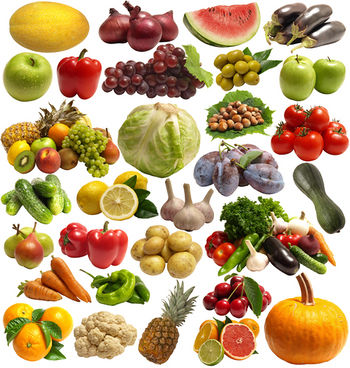Whole Food
From Health Facts
Latest Edit: Iva Lloyd, ND 2014-12-03 (EDT)
Whole foods are foods that are unprocessed and unrefined and are in their natural state. They do not contain any synthetic, artificial or added ingredients such as fat, carbohydrates or salt prior to consumption.
Types of Whole Foods
Examples of whole foods include:[1]
- unpolished whole grains
- Fruits
- Vegetables
- Organic meats
- Legumes and beans
- Nuts and seeds
- Wild fish (unfarmed)
- Non-homogenized dairy products.
Nutritional Benefit
Whole foods are the best source of nutrition and provide maximal nutritional value.
- Diets rich in whole foods contain high concentrations of antioxidants, fiber, vitamins, minerals, fatty acids and other phytochemicals such as flavonoids, carotenoids, and lycopene which are protective in nature.
- Whole foods are a rich source of essential nutrients needed for optimal health and their nutrient density far outweighs their caloric composition.[2], [3]
Shopping for Whole Foods
- Whenever possible, it is best to purchase organic whole foods that have little or no packaging.[4], [5], [3]
- Whole foods can typically be found on the outer aisles of the grocery store.
- Avoid foods with any added additives and preservatives as they are chemical in nature and increase the toxic load on the body.
- For example, packaged meats often contain added ingredients such as flavourings, preservatives and unnatural tenderizers.
- Canned or vacuum packed foods are not considered whole foods even though they might contain whole food ingredients because:
- They have often been processed with high heat and contain added chemical ingredients that may or may not be listed on the label.
- The packaging of the whole food itself often contributes toxins to the food.
References
- ↑ Murray Michael T (1993) The Healing Power of Foods Prima Publishing.
- ↑ Bruce, B; Spiller, GA; Klevay, LM; Gallagher, SK (2000). "A diet high in whole and unrefined foods favorably alters lipids, antioxidant defenses, and colon function". Journal of the American College of Nutrition;19(1):61–7.
- ↑ 3.0 3.1 Kirschmann and Kirschmann G (1996) Nutrition Almanac Fourth Edition McGraw-Hill.
- ↑ Pitchford Paul (2002) Healing with Whole Foods: Asian Traditions and Modern Nutrition Third Edition North Atlantic Books.
- ↑ Balch Phyllis (2006) A Prescription for Nutritional Healing Fourth Edition New York: Avery.
